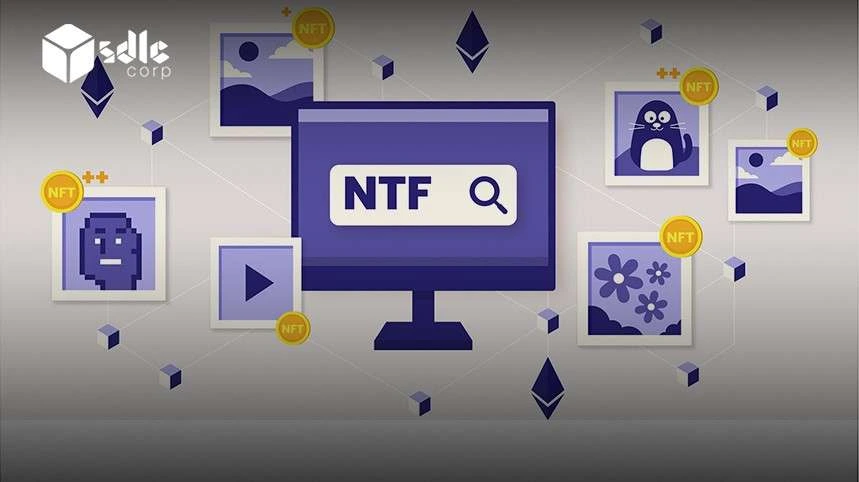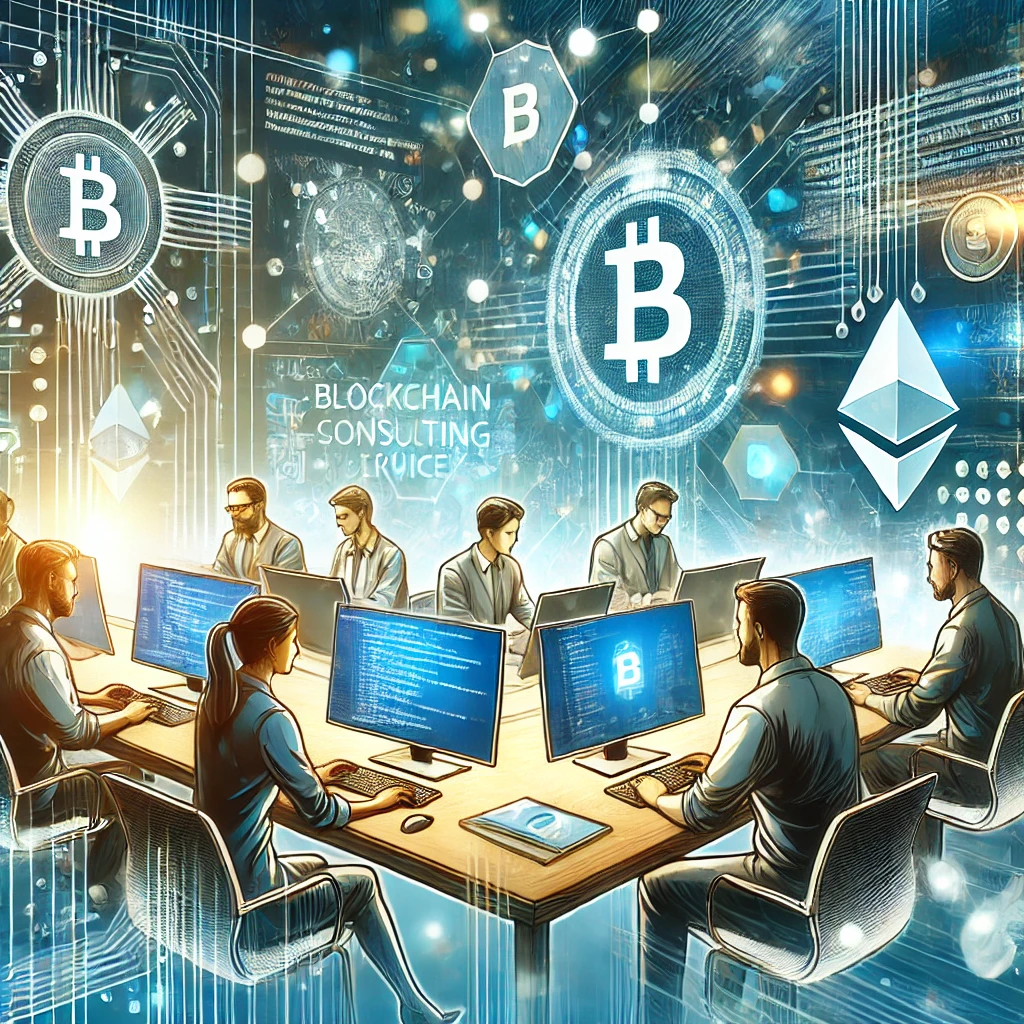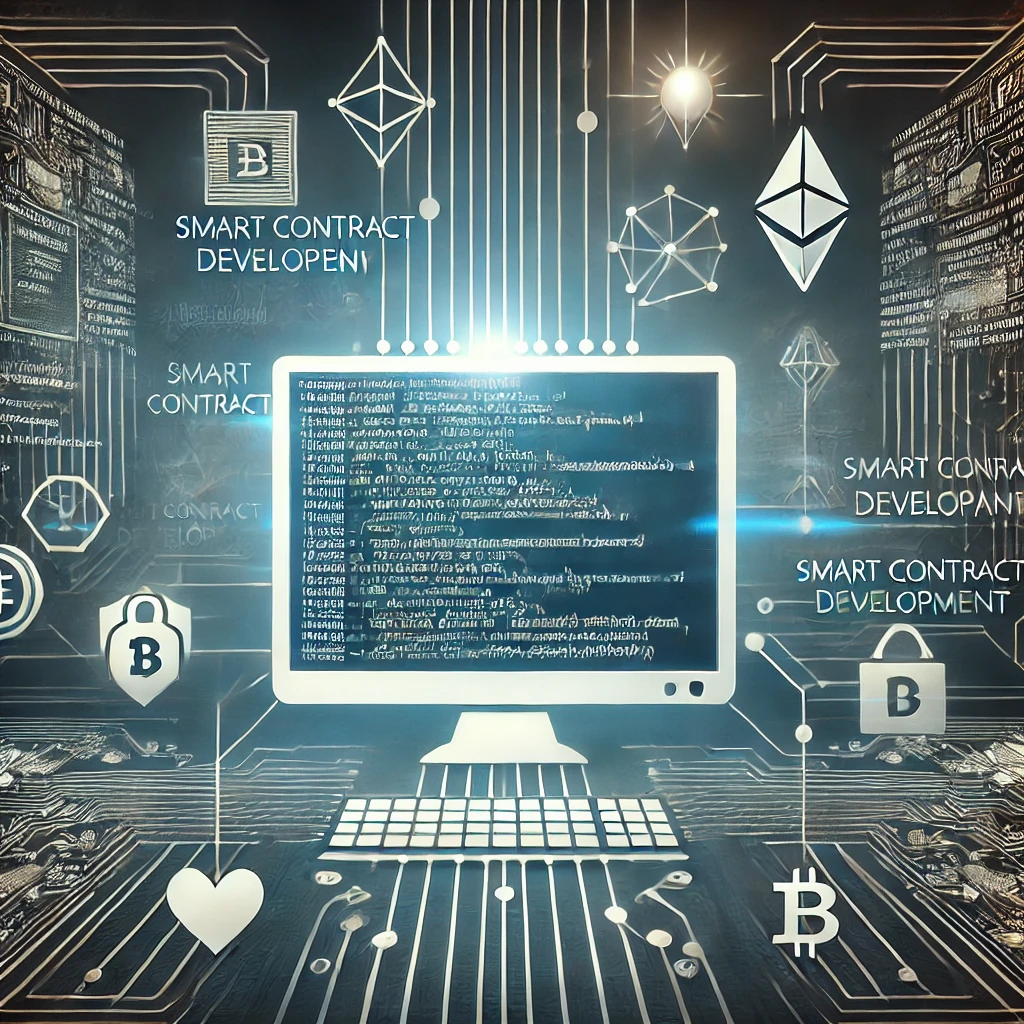Imagine purchasing a digital painting on the internet at a reasonable price and receiving a unique digital token confirming your ownership of the artwork. That possibility has become a reality with NFTs, or Non-Fungible Tokens.
NFTs are revolutionizing the world of digital art and collectibles. Just as Bitcoin became known as the digital solution to currency, NFTs are now seen as the digital answer to collectibles. With massive sales attracting a new wave of crypto enthusiasts, NFTs are transforming the careers of digital artists. These tokens are powered by blockchain technology, ensuring authenticity and uniqueness, which makes them highly sought after.
If you’re wondering, “What exactly is NFT, and how does it function?” you’re in the right place. Whether you’re interested in NFT Development, NFT Token Development, or exploring the broader ecosystem of NFT Marketplace Development and Blockchain Development, this guide will help you understand how NFTs work and why they are so significant.
In addition to the technology, services such as NFT Consulting Services and Smart Contract Development play a vital role in the growth of the NFT space. So, let’s dive in and explore what all the excitement is about!
What Is An NFT?
An NFT, a Non-Fungible Token, is a digital asset representing real-world objects such as art, music, in-game items, and videos. Unlike cryptocurrencies like Bitcoin or Ethereum, NFTs are unique and cannot be exchanged one-to-one, as each token has a distinct value.
NFTs offer a new way to participate in the buying and selling of digital assets. When someone purchases an NFT, they acquire the digital asset itself and the ownership data tied to it, proving their exclusive rights to the item. This ownership is secured through blockchain technology, ensuring transparency and immutability.
NFTs are rare and can hold immense value due to their uniqueness. NFT Development and NFT Token Development are essential in creating these tokens, enabling artists and creators to tokenize their digital assets. An NFT Token Development Company can assist with developing and launching NFTs, while NFT Marketplace Development focuses on creating platforms where users can buy, sell, and trade NFTs.
In addition, services like Blockchain Development and Smart Contract Development play a crucial role in ensuring the security and functionality of NFTs. If you’re looking for guidance in entering the NFT world, NFT Consulting Services can provide expertise to help you navigate this fast-growing space.
Unlock NFT Potential with Expert NFT Development

How Do NFTs Work?

NFTs, or non-fungible tokens, are cryptographic assets stored on a blockchain, a decentralized public ledger that records transactions. Each NFT has a unique code distinguishing it from other tokens, ensuring its individuality and authenticity. This data enables easy transfer of ownership and verification, making NFTs a secure way to buy, sell, and trade digital assets.
NFTs derive their market value from supply and demand, similar to physical assets, and can be traded accordingly. While most NFTs are digital representations of art, music, or collectibles, they can also represent physical assets such as real estate or artwork. Many believe that tokenizing real-world items will streamline the buying, selling, and trading process while reducing the risk of fraud.
NFT Development plays a crucial role in creating these unique tokens, and businesses involved in NFT Token Development or NFT Token Development Companies are pivotal in launching them. Additionally, NFT Marketplace Development allows for the creating of platforms where users can trade NFTs. Behind the scenes, Blockchain Development and Smart Contract Development are essential for ensuring that NFTs function securely and transparently. For those entering this space, NFT Consulting Services can offer expert guidance in navigating the NFT ecosystem.
How do You Obtain NFTs?
The NFT market is often considered high-risk, with dramatic fluctuations that can unsettle even seasoned investors. If you’re thinking about purchasing NFTs, it’s crucial to fully understand the process. Here are the key steps to follow:
Create a Cryptocurrency Exchange Account
The first step in acquiring NFTs is to create an account on a cryptocurrency exchange. A cryptocurrency exchange is a platform where digital currencies are bought and sold. To purchase NFTs, you need an account on your preferred platform. Different exchanges offer varying features, fees, and support, so it’s important to research which one best fits your needs. This is especially important if you’re planning to dive into NFT Development or NFT Token Development, as the platform you choose can impact the experience.
Create a Cryptocurrency Wallet
A cryptocurrency wallet stores the keys that give you access to your digital assets. When you set up a wallet, you’ll receive a unique seed phrase, also known as a recovery phrase, which is vital to keep safe. If you lose this phrase, you lose access to your wallet. Wallets can either be hosted on an exchange or function independently. If your wallet is hosted, the exchange acts as an intermediary, managing your assets and private keys. Alternatively, you can use a wallet directly linked to the blockchain, enabling peer-to-peer transactions. This is often preferred by those involved in NFT Marketplace Development and Smart Contract Development, as it allows for more control over transactions. There are two main types of wallets:
Hot Wallets Include
- Web-based or software wallets available as a desktop or mobile app or browser extension.
- Hot wallets are more vulnerable to cyber-attacks but are easier to access for trading.
Cold Wallets are Defined as
- Hardware wallets, physical devices not connected to the internet, providing greater security.
- However, losing your seed phrase means you have no backup and could permanently lose access.
Most NFTs are sold on the Ethereum blockchain, so choosing a wallet compatible with Ethereum and its cryptocurrency Ether (ETH) is essential.
Transfer Ethereum to a Crypto Wallet
Once you’ve set up your exchange account and purchased ETH, you’ll need to transfer it to your software wallet. The process will vary depending on the exchange, wallet, and marketplace you intend to use for trading NFTs. Whether you are involved in NFT Token Development Company services or just a buyer, this step is key to participating in the market.
Buy NFTs
After funding and connecting your wallet to an NFT marketplace, you can begin purchasing NFTs. When you buy an NFT, ownership of the token transfers to you. However, unless specified in an agreement with the creator, owning an NFT does not typically grant you rights to reproduce or modify the work. The terms of ownership and usage often vary depending on the marketplace you use.
NFTs can be traded and collected on marketplaces designed for this purpose, and NFT Consulting Services can guide you through the intricacies of trading, buying, or even building your own marketplace. As the industry grows, more innovations in Blockchain Development and NFT Token Development will emerge, helping to secure and simplify NFT transactions for everyone involved.
Explore Blockchain Development for NFT Success Today

What Exactly is an NFT Marketplace?
The NFT landscape is rapidly evolving, and most NFT marketplaces can be categorized into three main types:
Open Market
Open marketplaces allow anyone to buy, sell, or create new NFTs. In this type of marketplace, minting—the process of recording a unique copy of your token on the blockchain—is often handled automatically. Creators can also choose to mint their works themselves. These platforms are ideal for artists and collectors looking to participate in NFT Marketplace Development and are powered by key technologies like Blockchain Development and NFT Token Development.
Closed Marketplaces
In closed marketplaces, artists must apply for permission to join, and the platform typically handles the minting process. This creates a more exclusive environment, with limited opportunities for trading and selling. These marketplaces often collaborate with a NFT Token Development Company to ensure the minting and security processes are well-managed.
Proprietary Marketplace
These are marketplaces that sell NFTs specifically trademarked or copyrighted by the company that operates them. Such platforms are often designed around specific brands or franchises, and Smart Contract Development ensures that transactions are secure and straightforward.
Many NFT traders subscribe to multiple marketplaces to receive notifications about new NFT drops. These drops are frequently announced on social media platforms like Discord and Twitter, as well as through specialized tools such as Rarity Sniper and Rarity Tools. For those actively involved in the NFT space, NFT Consulting Services can provide guidance on the best platforms and practices for trading and investing.
Once you create an account on an NFT marketplace, you’ll need to link your wallet to start trading. Some marketplaces allow you to create a wallet directly on their platform, while others offer proprietary wallets, which can reduce fees and offer discounts compared to external wallets. For those looking to dive deeper into NFT Development or create their own platform, understanding the intricacies of wallet integration and blockchain is crucial to success.
Streamline Your NFTs with Smart Contract Development

Why Are NFTs Increasingly Popular?
While NFTs have existed since 2015, their recent surge in popularity is driven by several factors. The first and perhaps most obvious reason is the growing acceptance of cryptocurrencies and the underlying blockchain technology that supports them. This trend has sparked excitement around digital assets, including NFTs.
Beyond the technological aspect, the rise of NFTs is fueled by a mix of fandom, the potential for royalties, and the principles of scarcity. People are increasingly interested in owning unique digital content as an investment. When someone purchases an NFT, they gain ownership of the digital asset, even though the content can circulate widely online. The more exposure an NFT gets, its value can increase over time.
One of the reasons NFTs are so appealing is the opportunity for ongoing income. When an NFT is sold, the original creator typically receives a 10% royalty, the platform takes a small percentage, and the current owner collects the remaining revenue. This creates a system where popular digital assets can continue to generate income with each sale. This is especially relevant for creators and investors involved in NFT Development, as they can monetize their work through platforms built via NFT Marketplace Development and Smart Contract Development.
Authenticity is key in the world of NFTs. Digital collectibles are encoded with unique information that distinguishes them from others, ensuring they are easily verifiable on the blockchain. Unlike traditional collectibles, fake NFTs cannot be created, as each token can be traced back to its original creator or issuer. Furthermore, unlike cryptocurrencies, NFTs cannot be directly exchanged on a one-to-one basis, which is similar to how no two baseball cards are exactly alike. This uniqueness, powered by Blockchain Development and supported by NFT Consulting Services, adds to their growing demand.
For creators and collectors, services provided by an NFT Token Development Company are crucial in managing the technical side of minting and ensuring the security and transparency of their digital assets. As a result, NFTs continue to gain traction as a new way to buy, sell, and trade exclusive digital content.
NFT Marketplace Examples
There are numerous NFT marketplaces where users can buy, sell, and trade unique digital assets. Here are some prominent examples:
OpenSea
OpenSea is one of the largest NFT marketplaces, offering a wide range of NFTs in categories such as art, music, fashion, sports, games, and collectibles. It’s also a great resource for learning, with educational materials available to users. This platform is central to NFT Marketplace Development, allowing creators to engage in NFT Token Development and reach a global audience.
NBA's Top Shot
NBA Top Shot is an NFT marketplace specifically for basketball fans, where users can trade video clips of iconic moments. Its large and passionate fan base, along with contests and challenges, adds a social dimension to collecting. It’s a notable example of how Blockchain Development is being used in sports to offer unique experiences to fans.
Nifty Gateway
Nifty Gateway focuses on high-end art, featuring collections from renowned artists in mediums such as video, animation, fine art, and mixed media. This marketplace caters to those looking to collect or trade NFTs that may hold long-term value, making it a strong player in the NFT Development scene.
Rarible
Rarible is a decentralized platform built on the Ethereum blockchain. It enables users to create, buy, and sell NFTs, particularly those related to digital art. Its use of Smart Contract Development ensures that transactions are secure and transparent for all parties involved.
NFT Scams to Watch Out For
Unfortunately, as the popularity of NFTs rises, so do scams. Here are some common NFT-related scams to be aware of:
- Phishing Scams: Scammers promote false links or pop-ups on social media, pretending to offer new NFT projects and drops, tricking users into providing sensitive information.
- Catfishing: Fake celebrity impersonators, marketplace websites, and social media accounts are set up to deceive users into investing in fraudulent NFT drops or collections.
- Counterfeit NFTs: Scammers pass off someone else’s work as their own, selling fake NFTs.
- Pump-and-Dump Schemes: Scammers artificially inflate the price of an NFT, selling it at a high price before abandoning the market, leaving investors with worthless assets.
- Free Mint Scams: Users are tricked into participating in fraudulent mints, often losing control of their wallets through malicious contracts.
How to Avoid NFT Scams
To protect yourself from becoming a victim of NFT scams, follow these best practices:
- Use strong passwords and enable two-factor authentication for all your accounts.
- Keep your cryptocurrency in a cold wallet (a hardware device that stores your keys and assets offline) rather than on an exchange for better security.
- Conduct small transactions with NFTs before making large investments to verify the process works smoothly.
- Avoid clicking on suspicious DMs or interacting with unfamiliar NFTs sent to your wallet, as they may contain malicious contracts.
- Educate yourself on the risks and best practices for buying NFTs. Utilize guides, reviews, and expert advice from NFT Consulting Services to understand the market and protect your assets.
By following these steps, you can safely participate in the growing world of NFTs while leveraging opportunities offered by NFT Token Development Company services, Blockchain Development, and Smart Contract Development for a secure and profitable experience.
Conclusion
NFTs (Non-Fungible Tokens) have taken the world by storm, introducing a revolutionary way of owning and trading digital assets. These unique tokens, securely stored on the blockchain, represent a groundbreaking shift in the digital economy. While some analysts suggest that NFTs may be a speculative bubble waiting to burst, others are confident that the demand for NFTs will continue to grow in the coming years.



